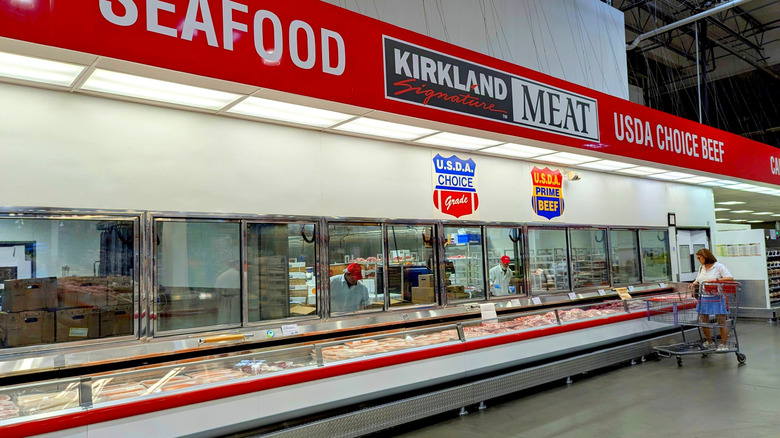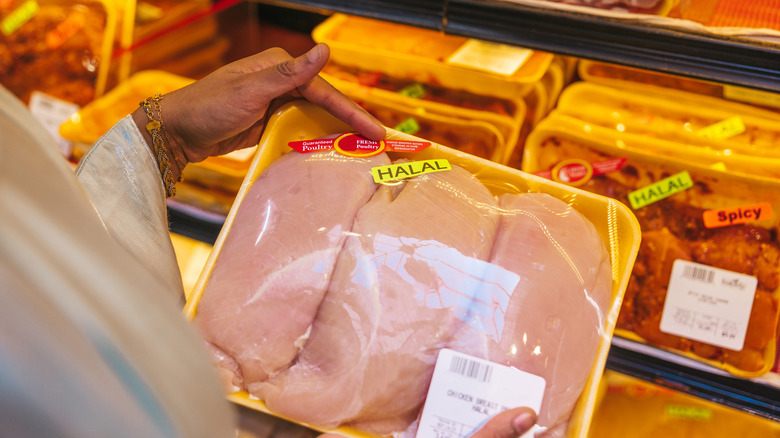Is Costco's Kirkland Meat Halal?
Costco has plenty of options for food of all types, but people with dietary restrictions have to be careful. For those who choose to stick to halal meat, items have to be specifically labeled to ensure that what's being eaten adheres to the rules of the Islamic religion. While Costco does have some halal meat, its Kirkland brand is much more limited in halal options.
Any meat that you buy from Costco will be labeled as being halal if it is, but if there's no label, then there's no reason to believe that it's safe to consume. There is no halal-specific section in most Costco stores; however, a rare few of them do have a separate refrigerated room with only halal meat. On Costco's website, you can filter by halal to narrow down your options, and you can further filter by brand to see what Kirkland options are actually appropriate. Unfortunately, not all the items listed on that page are actually halal, so always double-check for yourself before buying any meat from Costco.
Out of the options shown on the website, the only Kirkland-branded meats with halal in the name are the legs and racks of lamb, but be aware — these do not have the halal label on the package anywhere. This is concerning because it means that the food has not been officially certified by an organization like the American Halal Foundation, even though Costco is claiming that it conforms to the standards. To play it safe, it may be best to avoid the Kirkland brand altogether and stick with some of the other brands that Costco sells with the appropriate certification, like Greenlea, Deen Halal, or Diamond Valley.
What makes meat halal?
In order for food to be halal – translating to lawful — there are a number of standards that have to be met. Sources that are not considered halal are referred to as being haram, and any ingredient that is haram or has come into contact with haram can not be used in halal food. On top of that, halal meat should be certified as such from a proper source like the American Halal Foundation or Islamic Food and Nutrition Council of America so consumers can feel comfortable that what they're eating follows the proper standards. This holds true for both private and public consumption, such as in halal restaurants throughout America.
The rules for food being halal are generally simple to understand. Most foods are permissible as halal, other than alcohol (or anything else intoxicating), blood, swine, carnivorous animals, food killed for sacrifice, or meat that was slaughtered without proper Islamic rites. Cross-contamination is also important to avoid, as any contact with haram would nullify the food from being halal at all.
For an animal to be considered halal, even if it's not swine, it has to be treated properly throughout the course of its life. This includes having space to roam and access to clean food and water before ever going to slaughter. The slaughter process is also particular, where the animal should be slaughtered humanely. The slaughter should also take place facing Mecca, with the halal prayer being said for each animal.

